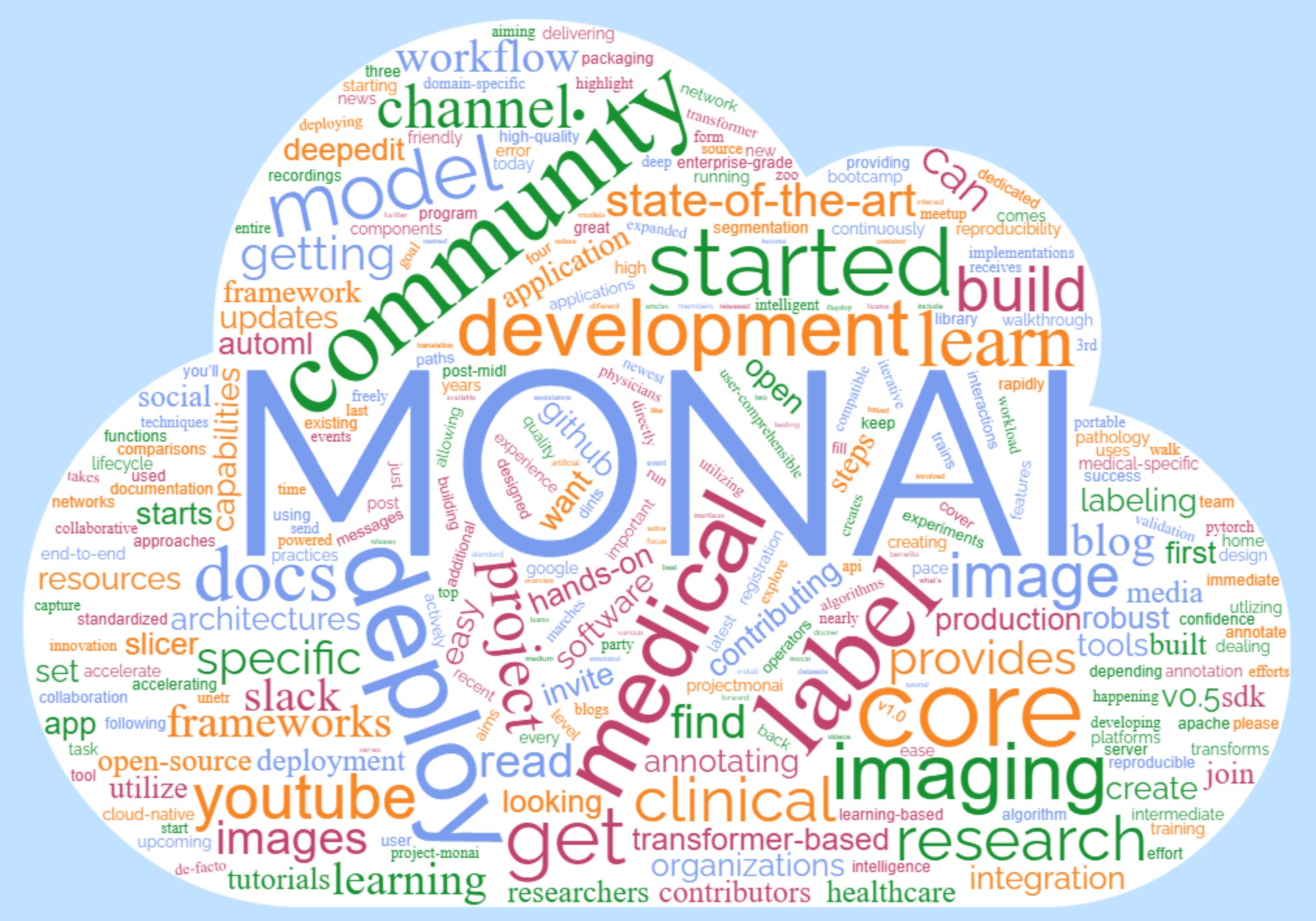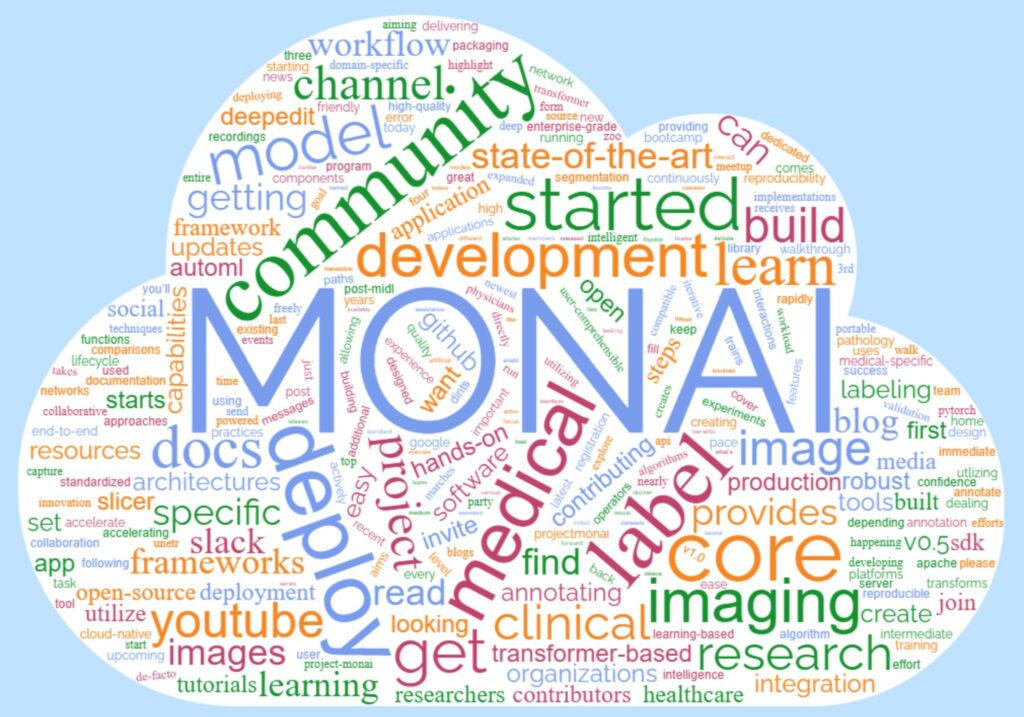MONAI: Looking back on 2022 and forward to 2023


It has been an amazing year for the open-source, medical AI platform MONAI (https://monai.io), and we have great plans for 2023!
Special thanks goes to the many outstanding MONAI developers and contributors, to NVidia and KCL who led much of the design and development of MONAI, and to the MONAI Advisory Board and its many working groups who continue to work with the medical imaging community to ensure MONAI provides the best of the best! We are also grateful to those who have been advancing the field of medical AI using MONAI and who have been providing feedback to ensure MONAI is continuously improving.
Details on our accomplishments during 2022 and our plans for 2023 are given below.
Best wishes to all this holiday season!
Stephen Aylward, Ph.D.
Chair, MONAI Advisory Board
Senior Director of Strategic Initiatives
Looking back on 2022:
- MONAI has been downloaded over 700,000 times with 3 major and 3 minor releases in 2022, including the release of MONAI 1.0!
- Over 500 projects on github incorporate MONAI.
- Over 150 published papers acknowledge MONAI.
- Our workshops, bootcamps, and tutorials introduced MONAI to over 1,800 attendees.
- MONAI was used in 17 MICCAI and other grand challenges, consistently placing in the top 3.
- The reference paper for MONAI Core was written and submitted for publication. It is available on arXiv: https://arxiv.org/abs/2211.02701.
- Many major new features were added to Project MONAI in 2022, including MONAI Bundle, MONAI Model Zoo, MONAI Federated Learning, and MONAI Experiment Management.
- Numerous algorithmic advances were also added to MONAI, including methods that support cutting-edge research into AutoML, AI for pathology, and active learning for MONAI Label.
- MONAI Deploy and several intense collaborations have led to massive clinical interest in and clinical impact, including NHS’s AIDE project, Amazon Healthlake, Google Health, partnership with Nuance, and many others.
Looking forward to 2023, several exciting areas of emphasis have already been identified:
- Generative models
- Metrics, metric frameworks, and metric guidelines from the benchmark team
- Lazy resampling to improve the speed, precision, and utility of transforms
- PyTorch 2.0 support, which promises 30% training speed improvement
- Ethical AI considerations being addressed by our models, algorithms, documentation, and policies
- MONAI Stream and Holoscan advancing MONAI for real-time and parallel inference in support of robotics and image-guided interventions.
Additional details on a few of these 2023 areas of emphasis are given below:
- Ethical AI: This topic has two aspects that we will address in 2023: (a) providing methods for measuring and managing bias in models and data (e.g., involving out of distribution detection and uncertainty) and (b) documenting and supporting our stance on the ethical use of AI (e.g., by asking contributors to disclose biases in models they submit to the model zoo). Ralf Floca (DKFZ) and Jayashree Kalpathy-Cramer (University of Colorado) will be leading related discussions and developments. Input is welcomed!
- MONAI Clinical Adoption. There were numerous outreach and adoption efforts in 2022, culminating in a massive presence at RSNA 2022. At the NVidia booth, 37 demos were given (every 30 minutes) by medical professionals and NVidia experts. The MONAI logo was on display at MANY booths. MONAI Deploy and MONAI Label gained massive clinical traction via Amazon HealthLake integrations that were introduced at RSNA. MONAI was featured in tutorials by the NIH’s Cancer Imaging Archive and Amazon – capturing the attention of data scientists and radiologists with a broad range of expertise. We are now planning CVPR, MICCAI, and several other workshops and tutorials for 2023.
- MONAI Developer Engagement. Following our successes with engaging clinical organizations and experts, we are discussing ways to engage with the broader MONAI development community. A monthly developers’ newsletter, a MONAI Project Week (similar to the highly successful Slicer Project Week concept), and other activities are being considered. Input is welcomed!
Whew!
Thanks to all of you for your help making MONAI such an outstanding success!
If you want to learn more about MONAI and how Kitware can help you deploy your medical AI solutions, request a meeting with our team.